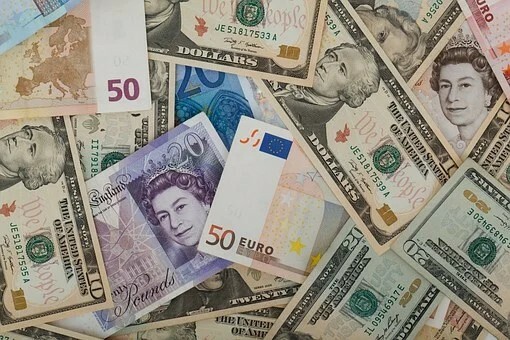Forex Trading vs Binary Options: Pros & Cons in Comparison
- Binary Trading
- Forex Trading
Binary options and forex are two of the most popular forms of trading. Whilst they share many common characteristics, they also have a number of fundamental differences. Let’s start off with a brief look at the history of each, before explaining how they work, and the pros and cons of forex trading vs binary options. You can quickly jump to information on Forex Scams and Binary Options scams here.
Forex in its present-day form essentially began in 1971, when President Nixon took the decision to allow the US dollar to float freely against other currencies. As currencies fluctuated in value against one another, speculators could make a profit, essentially by buying low and selling high.
The introduction of the Euro greatly reduced the number of tradable currencies, but ultimately this had little impact on the popularity of forex. The rise of the internet and increasing globalization made forex even more widespread, and today it continues to be the largest and most liquid market in the world.
Binary options are a much more recent arrival. The market as we know it today can trace its formation back to 2008, when the US Securities and Exchange Commission gave its approval for this form of trading. Other countries and regulators soon followed suit, and with binary options now available to retail traders, the market soon soared.
Binary options are also known as all-or-nothing options. If you correctly predict that an asset will be worth above a certain value at a certain time, you make a profit. But if your prediction is wrong, you lose all of your investment.
In recent times, some regulators have moved to ban binary options, amid concerns about rigged markets, fraud, and unfair trading conditions. Nonetheless, in the countries where they’re still legal, binary options remain a popular choice, so in the great forex vs binary battle, which one is for you? Read on for more information to help you decide.
How Does Forex Work?
Forex, or foreign exchange to give it its full name, is defined as the transfer of currency from one party to another, at a mutually acceptable price. If you’ve ever traveled abroad, you’ll have made a forex transaction to buy some local currency. But the vast majority of forex transactions aren’t made for holiday or business purposes: in most cases, profit is the motive!
When you return from your holidays with unspent foreign currency, you soon learn that when you change it back, the rates have changed. Sometimes you get a better deal, and more money back, but other times, you lose out. And that’s precisely how forex investment works, albeit on a much, much larger scale. Investors try to buy when a currency is low, in the hope that it will rise in value against other currencies.

There are several different types of forex trading, including spot markets, forward markets, future markets, options markets, and swaps markets.

How Does Binary Trading Work?
Binary options have become popular with investors for a number of reasons: the process is super easy, you can predict potential winnings and losses, you don’t need a huge initial investment, and you’re not dependent on what is happening in stock markets.
The principle behind binary options is simple. You make a prediction that the value of a certain asset is above a certain value at a certain time. That asset could take the form of a stock, a share, a commodity, or forex. If your prediction is right, you win. But if you’re wrong, you lose all your stake.
Here’s a simplified example of binary trade. Let’s say $1 dollar is currently worth £0.75. A binary option at $55 offers you a strike price value of £0.78, expiring on Friday at 17.00 GMT. If the final value is £0.78 or above, you win, and your option is worth $100.00. You make a $45 profit ($100 minus your original stake of $55). But if the exchange rate is less than £0.78, you lose all of your $55.
It is possible to make money with binary options, but remember that some countries have banned them over concerns of binary options fraud and unfair business practices.
The Pros And Cons Of Forex Vs Binary Options: A Comparison
There’s plenty of other trading and investment options, and you may come to the conclusion that binary options and forex are not for you. That’s perfectly fine, although it does mean you might be missing out on potential opportunities. If you do decide to trade in these markets, it goes without saying that you can greatly enhance your chances of success through practice, and by increasing your specific knowledge of the area.
The pros of forex include easy accessibility, high liquidity, fast trades, greater transparency, less market manipulation, plus reasonable fees. The cons include exchange rate volatility, lack of global regulation, and a potential in-built bias against smaller investors.
The pros of binary options include their simplicity, predictability (fixed amount of win or loss), quick payouts, plus the ability to invest small amounts. The cons include rigged markets, expensive fees, all-or-nothing results, and the prevalence of scammers.
Here’s a quick overview of some of the relative merits of binary options vs forex:
| Forex | Binary Options | |
| Simplicity | Easy | Easy |
| Risk factor | High | Capped |
| Stability | Volatile | Predictable |
| Potential return | High | Medium |
| Scamming risk | Medium | High |
| Legal | Yes | Limited |
| Automated trading | Yes | Yes |
| Accessibility | 24/5 | Market operating hours |
Your Options If You’ve Been Scammed
The success, ubiquity and simplicity of the internet is a double-edged sword. On the one hand, it greatly facilitates online trading in forex and binary options, but on the other, it hugely increases the scope for investors to be ripped off. Fake websites, rogue brokers, unregulated brokers, broken promises, dishonest deals and other cons are sadly all too common.
If you’ve been ripped off, your first step should always be to complain to your broker, and if that fails, to your national regulator. However, if you’ve been using the services of an unregulated broker or an overseas company, those choices might not be open to you. In such cases, the best option is to employ a dedicated funds recovery expert: Payback is a leading example. With their experienced teams of legal and financial professionals, funds recovery companies have a successful track record of helping victims of scammers to get their money back.
Latest articles
- •
- •
- •
- •
Your money back guarantee
The fund recovery process can be a lengthy one and requires perseverance. Therefore it is vital that our clients are ready for it and trust us every step of the way. So if for any reason you are doubtful, you can ask for a full refund within the first 14 business days of the process.*
*Read Terms & ConditionsDisclaimer: Payback Limited offers each new client a free consultation. Funds Recovery or other services that will be subsequently commissioned will incur fees and/or commissions, based on the service and the complexity of each individual case. Payback Limited doesn’t offer any investments, financial services, or advice.
At Payback we do not initiate calls without request. We only call clients that reached out to us.
The Company cannot accept prohibited payment methods.
Every payment received by the company is secure under the PCI-DSS protocol.
Are you sure you want to close this window?
All entered data will be lost
a) Our emails end with @paybacklimited.eu. b) We would NEVER ask you to send us money via Crypto.